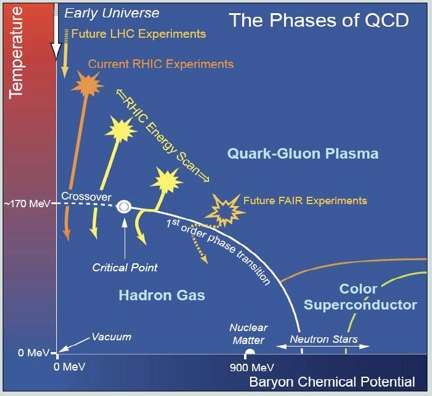Phenomenology in Particle Physics
Coordinator: Jean-Loïc Kneur
- Phase transitions, field theory at finite temperature and densities: we are using renormalization group methods that allow for analytical calculation of certain non-perturbative quantities, the order parameters associated with phase transitions, typically for chiral symmetry breaking in quantum chromodynamics (QCD). The accuracy obtained is comparable to that of lattice simulations. At finite temperature and density, the associated thermodynamic quantities show a significant improvement in the arbitrary renormalization scale dependence. We are also applying these resummation techniques in dense and cold QCD, notably for neutron star physics.
- Supersymmetric model phenomenology: we study the minimal supersymmetric (MSSM) and non-minimal extensions of the Standard Model and supersymmetry breaking models (SUGRA, AMSB, GMSB), with the development of our state-of-the-art public code dedicated to superparticle spectrum calculation (SuSpect).
- Strongly coupled theories beyond Standard Model: we study composite Higgs boson models using holographic techniques (gauge-gravity duality).
- Dark matter: we study models of dark matter candidates: neutralinos, gravitinos, singlinos, with calculations of thermally produced (e.g., WIMPs) or non-thermally produced relic density.
